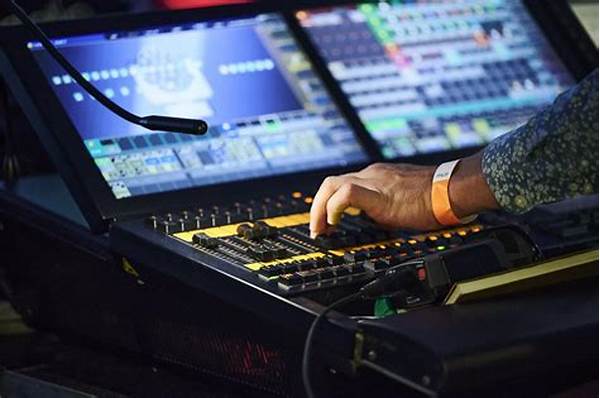When you’re in charge of an event, nothing is quite as nerve-wracking as the audiovisual sound check. It’s the invisible cog that ensures the wheels of your event run smoothly. Now, before you shake your head thinking, “Oh, another advice blog,” let me assure you—this is where you’ll discover the inside scoop to make your sound checks not just run-of-the-mill but extraordinarily seamless.
Read More : Common Mistakes During Av Installation And How To Avoid Them
Imagine the chaos of a live band performance where the singer’s mic suddenly stops working. Think of the cringe-worthy reverb during an impactful keynote speech. These are nightmares you can banish. Believe it or not, more than 70% of event professionals admit to having experienced technical difficulties that impacted their events. However, with the right preparation, you can belong to the prepared minority who dodge that bullet.
Understanding the Audiovisual Sound Check
Before diving into specifics, it’s essential to understand why a sound check is crucial. It’s the lifeline between a successful event and a “guess what happened” story. Just like a chef tasting food before serving, an audiovisual sound check is your opportunity to ensure everything is spot on. From ensuring microphones function seamlessly to checking that all visuals align in sync with your event’s message, this is where potential surprises are nipped in the bud.
The Importance of Timing and Coordination
First on the agenda is timing. Arrive early and encourage your team to do the same. The early bird catches the worm—or in this case, avoids the last-minute panic. Make sure to coordinate the schedule with all essential parties: tech teams, performers, and hosts. Communication here is vital—picture it as the secret sauce in event planning. Use tools like Slack or Zoom to streamline your communication efforts with everyone involved.
Be Prepared: Have Your Equipment Checklist
Always have an equipment checklist for your audiovisual sound check. Forgetting cables or batteries can cause unnecessary delays.
Get Ready for Potential Troubles
What if something goes wrong despite your careful preparation? Always have a backup plan. Rental services often offer backup equipment, so do consider investing in this service. Sometimes technology can be unpredictable, but with an extra mic or additional cables on hand, you are covering all the bases.
Final Steps: Rehearse and Test Again
Finally, it’s showtime for your sound check. Conduct a mock run-through of the event well in advance. Testing once is good, but twice is spectacular. Engage with performers and speakers directly—let them play their instruments or read parts of their scripts. This ensures that any issues can be identified from their perspective as well.
Details and Examples for Audiovisual Success
Taking these tips is not enough; implementing them effectively is where success lies. Let’s break down the key steps into digestible actions.
By turning these pointers into strategic actions, you elevate your event from good to unforgettable, ensuring both attendees and hosts can focus more on enjoying the moment rather than worrying about technical glitches.
Read More : Audio Visual Media For Effective Digital Storytelling Across Global Platforms
Points to Remember for Effective Sound Check
Final Summary: Ensuring Flawless Execution
The process of pulling off a successful audiovisual sound check is no easy feat. Yet, when executed meticulously, it sets your event light-years ahead, leaving a lasting impression on attendees.
Planning and Communication
Remember, the key is in planning and effective communication. The old adage “fail to prepare, prepare to fail” rings especially true in the realm of event planning. Involve everyone from technicians to performers, and even the venue staff, in your strategy sessions.
Making the Most of Technology
Make use of modern technologies to conduct your checks. Digital run sheets, cloud storage for media files, and messaging apps for real-time updates can be game-changers.
Learning and Adapting
Lastly, remember events are dynamic in nature. Sometimes, despite your preparations, things might not go as planned. But with the right mindset and a professional approach, you can always adapt, learn, and improve. After all, every event offers a learning curve pointing towards greater success on your next endeavor.
Your goal is not just to avoid mistakes but to create a seamless, emotionally resonant experience. So, next time you’re tasked with organizing an audiovisual sound check before an event, you’ll know precisely how to ensure it’s not just professional but exceptional. Here’s to zero glitches and euphoric applause!
